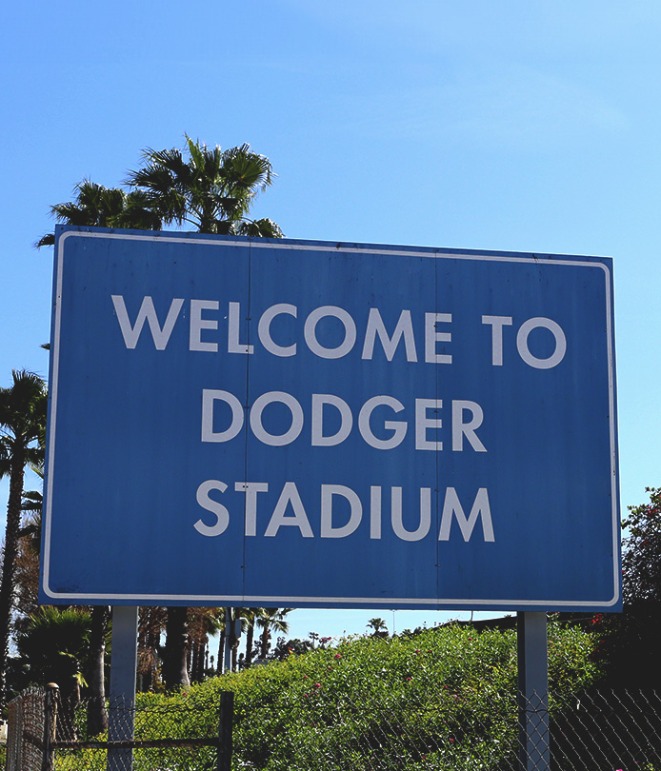
Study Finds Power Shifts at Work Can Boost Employee Energy and Productivity
New research shows natural ups and downs of workplace influence can sharpen focus, fuel motivation, and support goal pursuit.
A Q&A with Professor David Carter on Shohei Ohtani’s Historic Contract
A Q&A with Professor David Carter on Shohei Ohtani’s Historic Contract
Professor Carter weighed in on the implications of baseball superstar Shohei Ohtani’s $700 million deal with the Los Angeles Dodgers.

[Photo/iStock]
This past week, the Los Angeles Dodgers made HEADLINES with the signing of 2-time American League MVP and international superstar Shohei Ohtani. It’s an understatement to say Ohtani is unlike other baseball players. He pitches, hits, and does both at an elite level. For the last six years, he languished out of playoff contention with the Los Angeles Angels before becoming an unrestricted free agent this offseason.
His much-anticipated new contract didn’t fail to disappoint. Fans around the world were stunned to read about his 10-year, $700 million deal with the Dodgers, the largest contract in professional sports history. The numbers are unprecedented, as is the structure. Ohtani will defer $680 million of his salary until the conclusion of the contract in 2034, to be paid out in the ensuing 10 years. During the tenure of his contract, the superstar will only be paid $2 million per year, making him one of the lowest salaried players on the Dodgers’ major league roster. The decision greatly lowers Ohtani’s salary cap hit, opening up millions of dollars for the Dodgers to acquire better players and compete to win a World Series.
So what does all of this mean for Ohtani, the Dodgers, and baseball at large? We sat down with Adjunct Professor of Management and Organization and author of four books about the business of sports DAVID CARTER for his thoughts on the historic deal.
Interviewer: First of all, what was your reaction when you first saw [Ohtani’s] contract and the way that it was structured?
David Carter: The deal itself between the two parties makes a lot of sense when you think about the Dodger brand and Ohtani brand and where they’re able to take this together. They’re both able to make a lot of incremental revenue off of it. For Ohtani, that’s going to be a tremendous amount of income long term. For the Dodgers, it’s going to be the escalating franchise value. And so that’s really the backdrop against how you get to a contract that was announced at $700 million, but has been paired back to represent the present value of the contract, which is about $438 million.
You said that there are very few teams that can pull this off. Do you think [this deferral structure] gives an advantage to big market teams like the Dodgers and the Yankees and other clubs that can spend big?
DC: Well, it’s certainly an issue of geography and brand heritage like the Yankees, for example, the Lakers and the Celtics in the NBA. But it’s really about: do you have the revenue to get it done? And you don’t necessarily have to be in a huge market to generate that kind of revenue. But it helps.
When you think about, what they call a contractually obligated income that the Dodgers have coming in for a very long time, their ability to out flank all of the teams in the league is very strong. A lot of the other teams in the league have to understand that the team has to fund the deal. Even if [a player] is not playing, you essentially have to have a piggy bank for that money, such that, when that time comes to pay, you can’t just kick the can.
Can you break down where you think the Dodgers are going to make that money back?
DC: I think I look at it three ways. You start at the league level where they’re taking advantage of their international media rights. The Dodgers are scheduled in Seoul next March against the Padres. There will be tremendous interest throughout Asia and Japan, in particular, where Major League Baseball generates that revenue.
From the Dodger perspective, you can just check all the boxes. The demand for tickets has changed. The supply of seats at Dodger Stadium has not changed, so the price of the tickets is likely to go up. You’re seeing that already. The Dodgers, even more so, are going to be able to sell an immense amount of sponsorships to international companies that want to have this relationship with the Dodgers and Ohtani. The foreign corporations aligning with those two great brands is really good for business.
And certainly we’ve also already seen an amazing amount of merchandise fly off the shelves. And depending on where that merchandise is purchased, the Dodgers keep [the revenue] or it goes to the league.
Then the third piece is Ohtani. He has a great basket of endorsement relationships, when you think about New Balance and Seiko and Fanatics, a dozen or so great relationships, and he can extend that portfolio if he chooses to. He has that opportunity to become more of a global presence and monetize that personal brand through a whole bunch of new endorsements.
There have been deferrals like this in the MLB before. Mookie Betts and Freddie Freeman both have deferrals. Max Scherzer had a 50% deferral. Do you think the size of Ohtani’s deferrals (97% of his contract) is going to set a new precedent in the MLB?
DC: Well, the deferral depends on the economics of the league and the financial interest and the current state of that team itself. Clearly the player interests are vital for this as well. If you’ve got a substantial base of endorsements and you essentially don’t need that money [from the contract] to live on, you can survive on that $35 to $40 million endorsement range for Ohtani. And you can make the taxes work.
Then, examining a deal that is perhaps more creative makes most sense. It’s kind of ‘one plus one equals three.’ When you have the Dodgers and Ohtani together, they’re going to elevate the status of the entire operation.
There’s a lot of moving parts in this deal. There’s the deferral, there’s the $700 million headline number. There’s a clause that if Andrew Friedman (president of baseball operations) or Mark Walter (part owner, chairman) leave the team, Ohtani can opt out. There’s even a competition clause that says that the Dodgers have to surround him with players to be competitive. Which part of this deal was the most surprising and striking to you?
DC: I think the provision about the executives. You see it in other businesses and sports with executives being protected. I have not seen it, although it’s probably happened, whereby the player is protected and has that opt out.
Now, I think it’s important to understand that just because the player can opt out doesn’t mean that the athlete will opt out. It is merely a safety valve. You need to really get into those details. If the president of baseball operations, Andrew Friedman, loses a job from malfeasance or something else, does that affect the opt out? Or if there is some other financial irregularity forcing Walter to sell the team. What really goes into that?
So I wouldn’t get caught up in it a whole lot. There are going to be opportunities [for the Dodgers and Ohtani] to get out at a variety of times depending on circumstances.
You were quoted in an ARTICLE as saying that if Ohtani went to the Dodgers, it would be the final nail in the Angels marketing coffin. Can you elaborate on that?
DC: For the last many years, Dodger fans have wanted that last piece of the puzzle to get them to the World Series, to get them to the point where Dodger fans expect them to be not just playoff competitive, but the world champions. The Angels have struggled to make the playoffs and perform well despite having two of the greatest stars of the game [Shohei Ohtani and Mike Trout] in the current era.
To lose one of those guys, especially lose one of them to the Dodgers, creates a greater separation in the marketplace, beyond the hardcore fans for the Angels, the casual fans and others. I think they look at it and say the Dodgers are doing what the Dodgers do and the Angels are doing what many feared they would do — lose Ohtani — and that’s not going to help the Angels sell tickets or renew sponsorships.
What do you think is the one thing that people don’t realize or wrongly assume about this deal?
DC: That’s a great question. I think that as most people do, they read the headline, and they don’t understand nuance and the creativity and the hard work that goes into crafting a deal like this.
It’s not just getting together and trying to knock something out over breakfast. It requires a lot of skilled professionals from finance and accounting and marketing and others to figure out what, where, and when your return on investment is going to be for this kind of the deal.
Last question. This one is a little difficult so it’s okay if you need time to answer it…but do you think the Dodgers are going to win the World Series in 2024?
You know what’s funny about that? People that know me know I’m not much of a sports fan so I have no idea. I think Dodger fans expect them to? But I’m the wrong guy to ask that.
RELATED
Study Finds Power Shifts at Work Can Boost Employee Energy and Productivity
New research shows natural ups and downs of workplace influence can sharpen focus, fuel motivation, and support goal pursuit.
Artificial Intelligence Can Help New CEOs Drive Innovation
New research shows AI can be a strategic catalyst for innovation and creativity, especially during leadership transition.
Dean’s Dialogue: SpaceX CFO Bret Johnsen on Space Innovation and the Trojan Network
Bret Johnsen, a Leventhal alumnus, spoke with Marshall Dean Geoffrey Garrett about SpaceX’s cutting-edge projects, U.S. manufacturing, and the value of a USC education.
Understanding Hidden Interaction Codes that Drive Business Success
A new study from Associate Vice Dean Peer Fiss and a former Marshall PhD students found that “category interaction codes” influence how consumers evaluate, buy, and use products.
Marshall Faculty Publications, Awards, and Honors: October 2025
We are proud to highlight the many accomplishments of Marshall’s exceptional faculty recognized for recently accepted and published research and achievements in their field.